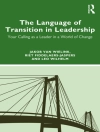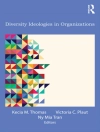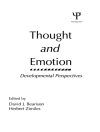This book raises important questions about whether or not researchers can ever keep their own lives out of their work. In contrast to traditional impersonal approaches to research, reflexive researchers acknowledge the impact of their own history, experiences, beliefs and culture on the processes and outcomes of inquiry.
In this thought-provoking book, Kim Etherington uses a range of narratives, including her own research diary and conversations with students and academics, to show the reader how reflexive research works in practice, linking this with underpinning philosophies, methodologies and related ethical issues. Placing her own journey as a researcher alongside others, she suggests that recognising the role of self in research can open up opportunities for creative and personal transformations, and illustrates this idea with poetry, paintings and the use of metaphors and dreams. She explores ways in which reflexivity is used in counselling and psychotherapy practice and research, enabling people to become agents in their own lives.
This book encourages researchers to reflect on how self-awareness can enrich relationships with those who assist them in their research. It will inspire and challenge students and academics across a wide range of disciplines to find creative ways of practising and representing their research.
Innehållsförteckning
Acknowledgements. Part One – Bringing Theories Alive. 1. Introduction. 2. Reflexivity: Meanings and Other Matters. 3. Everything But the Kitchen Sink. 4. Re-telling Stories of `Everything But the Kitchen Sink’. 5. Methodologies and Methods. Endnote to Part One: Beware: A Poem. Part Two – The Master’s Stage of the Journey. 6. A Personal Journey: My Master’s Stage. 7. The Supervisor’s Role in Reflexive Research at the Master’s Stage. 8. Heuristic Research as a Vehicle for Growth and Development. 9. Keeping a Reflexive Research Journal. 10. Autoethnography. 11. Using Creativity in Autoethnography – contribution by Sue Law. Endnote to Part Two: Talking to the World. Part Three – The Doctoral Stage. 12. The Ph D Candidate-Supervisor Relationship. 13. Connecting Doctoral Research Topics to Ourselves. 14. Stories of Liberation and Independence by Viv Martin. 15. Too Close to Home: A Dilemma of Involvement. 16. Reflexive Embodied Research. 17. Ethical Relationships in Reflexive Research. Part Four – The Post-Doctoral Stages. 18. Becoming a Reflexive Post-Doctoral Researcher. Endnotes: A Dream. Final Synthesis of Voices.
Om författaren
Kim Etherington is a Reader at the University of Bristol, and is a BACP accredited counsellor and supervisor in private practice. She has worked as an occupational therapist in NHS general and psychiatric hospitals, social services and charitable organisations, including a child guidance clinic and a community for people with autism. She is the editor of Trauma, the Body and Transformation and author of Narrative Approaches to Working with Adult Male Survivors of Child Sexual Abuse, both published by Jessica Kingsley Publishers.












